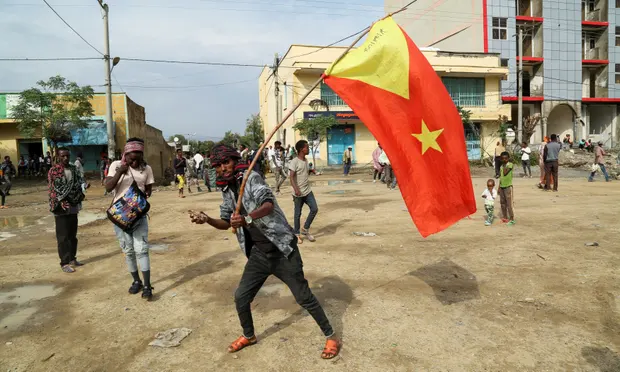The United Nations’ World Food Programme (WFP) has announced the resumption of food aid distribution in the war-torn region of Tigray in northern Ethiopia. The aid had been suspended in May due to allegations of misappropriation. The WFP, in collaboration with the US government’s international aid agency USAID, had initially suspended food aid to Tigray before extending the decision to the entire country.
Starting from July 31, the WFP has been implementing enhanced controls and measures to ensure the delivery of food aid to the most vulnerable populations in four districts of Tigray. Over 100,000 eligible individuals have already received 15kg pre-packed bags of wheat. Alongside the resumption of aid distribution, the WFP has also reactivated the registration of food aid beneficiaries and introduced bag marking for accurate tracking of food supplies.
The WFP intends to extend these measures to other districts within Tigray, as well as the Amhara, Afar, and Somali regions. However, specific timelines for the expansion have not been provided.
In response to queries from AFP, USAID confirmed that US food aid to Ethiopia remains suspended while emphasizing their close cooperation with the WFP.
The conflict in Tigray, which took place between November 2020 and November 2022, resulted in a severe deprivation of assistance for the region’s six million inhabitants. Aid distribution had gradually resumed but was halted once again by the WFP and USAID.
The suspension of food aid had received criticism from Ethiopian authorities, who argued that it was punishing millions of people. The situation in Tigray had led to a dire humanitarian crisis, with many Tigrayans going without meals and resorting to desperate measures such as prostitution to obtain food.
The UN Office for the Coordination of Humanitarian Affairs (Ocha) estimated that by the end of May, 20 million Ethiopians, approximately 16% of the population, relied on food aid due to armed conflicts and a historic drought in the Horn of Africa. The conflicts have led to the displacement of 4.6 million people across the country.
It is worth noting that Ethiopia also hosts nearly one million refugees from South Sudan, Somalia, and Eritrea, adding to the complexity of the humanitarian challenges faced by the country.
Given the scale of the crisis, the resumption of food aid distribution in Tigray is a significant step towards mitigating the suffering of the population. The WFP’s enhanced controls and measures are aimed at ensuring that aid reaches those who need it most and prevents any potential misappropriation in the future.
However, the road to recovery remains long and challenging. The Ethiopian government, along with international organizations, must work together to address the root causes of the crisis and provide sustainable solutions to the ongoing conflicts and environmental challenges.
As the situation unfolds, it is crucial for the international community to continue supporting Ethiopia and its people in their efforts to rebuild and create a more stable and prosperous future.





